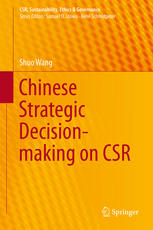

Most ebook files are in PDF format, so you can easily read them using various software such as Foxit Reader or directly on the Google Chrome browser.
Some ebook files are released by publishers in other formats such as .awz, .mobi, .epub, .fb2, etc. You may need to install specific software to read these formats on mobile/PC, such as Calibre.
Please read the tutorial at this link: https://ebookbell.com/faq
We offer FREE conversion to the popular formats you request; however, this may take some time. Therefore, right after payment, please email us, and we will try to provide the service as quickly as possible.
For some exceptional file formats or broken links (if any), please refrain from opening any disputes. Instead, email us first, and we will try to assist within a maximum of 6 hours.
EbookBell Team

5.0
110 reviewsThis research study attempts to provide a comprehensive CSR literature review, analyze corporate social responsibility (CSR) issues from the strategic decision-making (SDM) perspective, and investigate the process of managers’ CSR- related SDM in China. In particular, it utilizes content analysis to examine selected CSR articles from published studies, in order to evaluate the trends in CSR theory development as well as to identify the variables, constructs, and relationships within CSR theory.
The review indicates that CSR should be involved in organizational strategies. Therefore, this study reviews the relevant theoretical and empirical literature in the SDM area. Firstly, it summarizes the broader context of strategic decisions and points out factors in the external environment and organizational characteristics that influence the SDM process of managers. Secondly, it articulates the influences of individual characteristics on the SDM. Thirdly, it examines the process of SDM using the rational and bounded rationality theory of decision making. Finally, on the basis of the SDM model, the author generates a research model which proposes the links between vital and influential factors from an integrated perspective.
This book also provides a detailed description of how to choose a proper method for the CSR-related SDM research, the process of survey design, sampling methods, and survey administration. In particular, the author utilized a policy-capturing method to develop a series of scenarios concerning CSR activities and an explanation of this method is provided. It reports research findings of this study and provides an extensive and thorough discussion and compares it with previous empirical studies. The conclusion summarizes the research findings and their theoretical and practical implications.